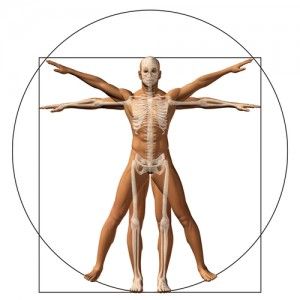Benefits

Yoga and Movement Therapies - An Overview
It is common for people to come to my classes or consult with me privately about physical pain or diagnoses they may have received. X-rays, MRI, and other compelling diagnostic imaging often validate evidence of some physical issue related to these issues. Bursitis, arthritis, low back pain, spinal disk, or hip issues that include degenerative conditions can present themselves when the body habitually moves in ways it is not designed. All this can happen due to injury, lifestyle, and other causes.
These pain, balance, or movement problems may result from musculoskeletal imbalance and postural misalignment. These imbalances place ongoing stress on the structures of the body and can be the deeper roots of many of the pain and movement challenges we face.
For many, the search for suitable Yoga or other movement therapy solutions for specific problems is the first and most crucial step in best addressing their concerns. This is more critical if more specific medical or physical challenges are present that have been challenging to resolve through other means.
Individualized Yoga and Movement Therapy sessions are a one-on-one experience with an Instructor/Therapist who can tailor the techniques and practices of Yoga, Somatic Based Postural Therapy, Meditation, and related disciplines to specific needs and personal goals.
Students can benefit from individual work, supporting mental and physical health improvements. All this work is non-medical. Rather than treat any disease or symptoms, the aim is to address the root causes of these challenges in conjunction with medical and other therapeutic disciplines.
The International Association of Yoga Therapists, on their Yoga Therapy. Health website discusses how Yoga therapy is set apart from more traditional Yoga taught in classes as follows:
“Although all Yoga is potentially therapeutic and healing, yoga therapy is the specific application of yogic tools—postures/exercises, breathwork, meditation techniques, and more—to address an individual’s physical, mental, and emotional needs. Many people first learn about Yoga through its physical practices, but a common misconception is that it’s all about stretching or movement. In fact, yoga therapy can help people who can’t move at all, as well as active individuals!” (1)

Western medicine is realizing the value of Yoga as a complement to traditional healthcare. There is a growing body of research available (2) that confirms that yoga practices can be powerful tools to support stress reduction, reduce physical pain problems, and used as part of a program to alleviate anxiety and mood issues.
These practices may offer non-medical support for concerns such as lower blood pressure, improved cardiovascular efficiency, enhanced respiratory function, and reduced gastrointestinal upset. I look forward to working with you and your healthcare provider to help maximize these benefits. This complimentary approach can best support your movement beyond dis-ease into optimal overall health and wellness.
For more information on this posture and movement therapy or to set up a free consultation, please contact me here or at (203)488-1700.
Our free consultaton are desgnied to help you to understand you how your posture and movement pattern may be getting in the way of your activities and pain-free lifestyle. This can be an eye-opener as many have found brief conversation has helped them make sense of how this posturally based approach is so unique in the way it can address pain, balance and movement problems that have taken away activities or impaired them in living the life they desire.
***The information provided in this article is for educational purposes only and is not intended to be a substitute for professional medical advice, diagnosis, or treatment. Always seek the advice of your physician or other qualified health providers with any questions you may have regarding a medical condition. Never disregard professional medical advice or delay in seeking it because of something you have read in this article. Please note that the results of any Yoga, meditation, or other therapeutic or exercise work may vary. Please read our disclaimer for more information.
1.) YogaTherapy.health, What is Yoga Therapy
2.) National Institutes of Health, National Center for Complimentary and Integrative Health
